July Budget 2015: George Osborne's key announcements
The Chancellor's second budget of the year set out plans for a national living wage - and £12bn of welfare cuts
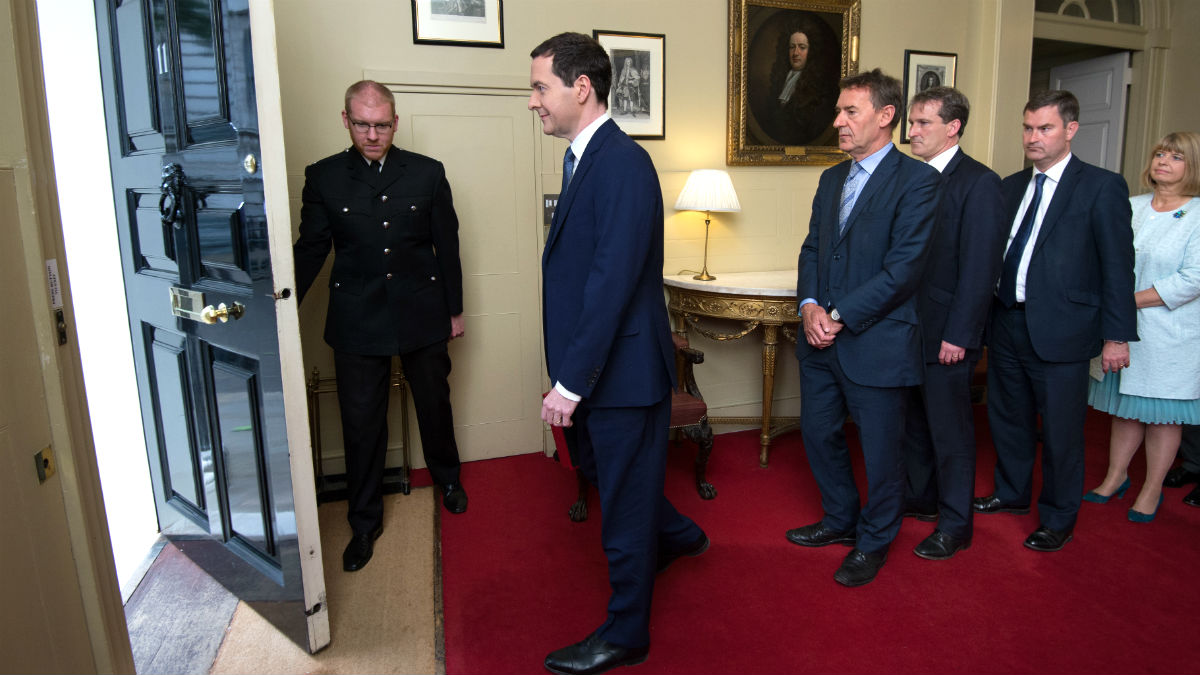
A free daily email with the biggest news stories of the day – and the best features from TheWeek.com
You are now subscribed
Your newsletter sign-up was successful
July Budget 2015: six key announcements to expect
7 July
We're just one day away from the second Budget of the year – and the first since November 1996 under a majority Conservative government.
Reuters reports the party is set to use the opportunity of an "unexpectedly" decisive election victory to "remould" Britain's economy. This means a greater focus on enterprise and lower spending – £12bn less to be precise – on welfare.
The Week
Escape your echo chamber. Get the facts behind the news, plus analysis from multiple perspectives.

Sign up for The Week's Free Newsletters
From our morning news briefing to a weekly Good News Newsletter, get the best of The Week delivered directly to your inbox.
From our morning news briefing to a weekly Good News Newsletter, get the best of The Week delivered directly to your inbox.
Prime Minister David Cameron has said he wants to end the "merry go round" of dependency that sees people taxed only to have money returned later in state handouts. Critics accuse the government of abandoning key priorities such as eradicating child poverty.
So what can we expect on Wednesday 8 July?
1. Tax credits to be hit
The Conservatives campaigned in the election on a platform of renewed austerity, pledging to cut a further £12bn from the welfare state. They say they have identified the savings and will make good on the promise.
A free daily email with the biggest news stories of the day – and the best features from TheWeek.com
Some key areas, such as child benefit and pensions, have already been ruled out. What's left is expected, in the words of The Guardian, to be "hit hard" with tax credits (in particular child tax credits) in the crosshairs, along with some disability benefits.
We already knew the cap in welfare of £26,000 per household would fall to £23,000, but there are rumours it might be cut further outside London and the South East where the cost of living is higher, perhaps to £20,000. Those under the age of 21 might be barred from housing benefit, which might also be restricted to 90 per cent of rental costs irrespective of the sums involved.
2. Sweetening the pill?
This all amounts to bitter medicine for a country that has already seen five years' of cuts. To counter charges that it is the 'nasty' party, the Tories are also expected to make the first move on plans to increase the personal allowance – the amount you can earn before paying income tax – from the current £10,600 to £12,500.
George Osborne has promised the allowance will reach that level by the end of the parliament in 2020, so making a down payment of some sort will allow him to claim to represent the 'party of working people'.
This would be further helped by moves to offset cuts to tax credits with increases in wages for the lowest paid, which The Telegraph says could be achieved by either forcing up the minimum wage, or offering businesses tax cuts and other 'nudge' incentives to pay more.
3. Economic boost
More cover will be provided for Osborne by the improving economic picture, which will allow him to argue that benefit cuts and other savings have not harmed the country's prospects.
New figures will be presented by the Office for Budget Responsibility, but based on what has been published elsewhere in recent weeks we can expect growth to be upgraded to suggest the UK is the fastest growing country in the G7 and that borrowing is falling faster than expected.
Osborne could also reveal the amount the Treasury will take in income tax from pensioners accessing their savings under new retirement freedoms. Estimates quoted by Pensions Age suggest this could yield £1.2bn in additional tax revenues this year alone.
4. Windfall winners
If things are markedly better than previously thought it will be interesting to see how the Conservatives choose to spend the money. Some will be hoping for an easing of austerity (unlikely), others will be looking to see if promised tax cuts for medium and higher earners scheduled for later in this parliament are brought forward.
Some have said the Tories could move to cut the 45p tax rate for those earning more than £150,000, leaving the country as it was before the crisis with a single higher rate of 40p. This has a lot of backing on the blue benches where it is seen as a barrier to aspiration, but would be relentlessly attacked by opposition parties as a gift to the rich.
5. Pensions and IHT
We were already expecting this, but the chancellor could use his speech to firm up plans to restrict tax relief on pension contributions for those earning above £150,000. Moneywise says this would probably mean a decrease of £1 in every £2 above the threshold, with a floor of £10,000 relief for those earning £210,000 and more.
There would also be a new lifetime allowance introduced, meaning the size of a fund in the tax-sheltered pensions environment will be capped at £1m.
This would be used to pay for a modest concession on inheritance tax, another favourite of Conservatives. The party has outlined plans to introduce a new allowance of £175,000 to be used to pass on high-value property. In combination with the existing £325,000 rate and with the rules allowing married couples and civil partners to inherit their partner's allowance on death, this would mean a £1m property could be passed down a generation tax free.
6. Sunday shopping shake-up
Restrictions on Sunday trading hours could be lifted, under a proposal to be announced tomorrow. Currently, shops larger than 280 square metres in England and Wales are allowed to open on Sundays only for six consecutive hours between 10am and 6pm. In what the Chancellor is expected to hail as the biggest shake-up of Sunday trading laws for 20 years, elected mayors and councils could be given the powers to relax laws locally to boost economic activity.
Research by the New West End Company suggests that two extra hours of Sunday trading could create nearly 3,000 jobs in London and more than £200m a year in additional sales. However, James Lowman, chief executive of the Association of Convenience Stores, has warned that trade would shift from small shops to larger stores. "The short period of time that small stores are open while large stores are shut is a crucial advantage for convenience stores, most of which are owned by small businesses," he said. "Liberalising Sunday trading hours would make some small stores unviable."
What else is on the agenda?
- Some analysts expect Osborne to say he will remove housing benefit from people aged between 18 and 21 who are claiming jobseekers’ allowance.
- Local authority and housing association tenants earning more than £40,000 in London or £30,000 elsewhere in England will have to pay market rent.
- The cost of free TV licences for the over-75s is to be transferred to the BBC, which will need to find the money from its existing budget.
- A leaked paper seen by the BBC suggests the Chancellor may scrap the illness benefit Employment and Support Allowance.
- A clampdown on 'non-doms', wealthy individuals not paying tax on offshore earnings, as part of a broader £5bn campaign against tax avoidance.
- Osborne is expected to pledge £30m in funding to speed up the process of finding adoptive parents for children in care in England.
- An extra £100m for the Crossrail project in London. The money will be used to work out the fine details of the next phase, Crossrail 2.
Q&A: the July budget
Why are we having another Budget?
The general election gave a mandate to a Conservative Party manifesto that included pledges to cut £13bn from spending across government departments not already ring-fenced and £12bn from the welfare bill. Beyond these headline figures, though, very little detail was offered, so this speech will set it all out. It's also the first chance for the Tories for set out an agenda that isn't tempered by a coalition partner.
Does this mean the last Budget no longer applies?
In a word, no. The provisions of the March Budget will still apply – these new announcements will simply introduce the measures the new government has pledged to implement. Of course, where a policy is a specific change to an existing provision, the old rule will no longer apply.
Why didn't the government just give the detail before the election?
There are two theories and ultimately it depends on your feelings towards the government. The Tories insist that they simply did not know where the cuts were going to come from, only that savings were clearly possible. Work and Pensions Secretary – and bete noire of the left – Iain Duncan Smith said during a debate on the BBC's Daily Politics ahead of the election that the party was unlikely to reveal more before the vote because "we'd have to have done the work". He added that as "soon as we have done the work and had it properly modelled then we will let everybody know what that is".
Prime Minister David Cameron repeatedly stressed that the Government's track record – it cut around £18bn from the projected welfare bill during the last parliament – showed that it was capable of making the savings promised. He added that the party’s record on jobs – around 2 million were created during the last parliament – coupled with its move to increase the lower rate of income tax several times (and effectively lift many lower earners out of tax), show it can do so without compromising the economy or Tory values of 'fairness'.
The opposition and its supporters argue that the government knew where the scythe was going to fall, but that to reveal this during the campaign would have cost it valuable votes. They add that a Budget held just weeks after the general election, when the government is still basking in the glow of victory and enjoying a boost in the polls, is a good time to get the bad news out of the way, especially as it will be five years before the country next has a chance to vote against them.
Of course, the argument that the government simply did not know where it was going to find the cuts could have been politically damaging in itself, given the Conservatives' frequent attacks on Labour's economic credibility and alleged opacity, but ultimately the Tories had built up enough credibility in their ability to cut public spending during the coalition years that people were wiling to believe them anyway.
Is it all about cuts?
Cuts are what will make the headlines, but there will be more to the speech than setting them out. For the government it is an opportunity to update the economic figures from the Office for Budget Responsibility which is going to be producing a new set of forecasts specifically for the occasion.
The Tories have had some good news this week, with the BBC and others reporting on new figures released by the Office for National Statistics that show borrowing fell to £10.1bn in May, the lowest for the month for eight years. According to the FT "unexpectedly large rises in tax revenues" were responsible for the forecast-beating boost, which was in part due to a 5.6 per cent rise in VAT as a result of strong retail sales in May and a 5.3 per cent jump in income tax and capital gains tax revenues.
Elsewhere expect a lot of talk about promised tax cuts, with the government committed to continuing to lift the income tax threshold for the lower paid to £12,600 and to bring in tax cuts for those who fall into the 40 per cent higher rate bracket. We may have to wait for further hard moves in this direction, however. Osborne will also mention his new law to commit future governments to surplus in benign economic conditions.
Are the savings achievable?
The government has relied on its track record and the relatively small scale of the savings compared to the wider welfare bill to argue that they are – and in a sense anything is possible. Whether or not they are desirable given the constraints is a matter of debate. More than half of a total bill quoted by the Government at around £220bn is made up of untouchable spending such as state pension, pension credit and child tax credit. We're talking about cuts in excess of 10 per cent elsewhere, which will be felt.
The Guardian cites child poverty statistics, which show the number of children living in households earning less than 60 per cent of the national average is projected to increase for the first time in a decade, in order to demonstrate how cuts are already beginning to bite. Together with other public figures with left wing sympathies, Alison Garnham, chief executive of Child Poverty Action Group, is quoted as saying that the 'one nation' moral mission trumpeted by Cameron cannot involve "taking away tax credits for our poorest children".
Alongside changes to how this definition applies – the Government insists it is wrong to measure child poverty as a simple percentage as this means the rate would artificially fall during a recession as average wages decline – it will be interesting to see how the cuts are pitched. According to Citizens UK, around £11bn is spent on tax credits and benefits for those not earning a living wage, so accelerating increases to the minimum wage could be a way to reduce spending which merely props up profits.
It all sounds pretty controversial – but is it necessary?
Again, there are binary camps. Some hold that George Osborne is throwing out an important Keynesian ideal by seeking to make cuts when the economy is struggling and that this is doing more harm than good in terms of lost revenues elsewhere. Supporters of the government claim that the national debt is now such that cuts to excessive spending are unavoidable if the country wants to return to a sustainable financial footing.
Whatever your view, the debt figures are not pretty. The UK has just exceeded £1,500bn in gross national debt and is paying the equivalent of the defence budget in interest repayments to service this at a time when rates are low. On top of that even with improved borrowing figures we're still likely to run a higher budget deficit this year (this was projected at around 4.8 per cent at the last Budget) than most of Europe, including France and Italy.
Will I be worse off?
This is the key question for most and the answer depends, as ever, on your personal situation. Those of working age who are on benefits can expect a hit, while those working in unprotected areas of the public sector will be nervous about cuts to the departments from whose budget they are funded. Lower earners can expect a mixed bag, depending on what happens, with working tax credits, wages and the lower band of income tax. Middle earners are likely to be the winners again, even if only by virtue of being left alone this time around.
-
 Democrats seek calm and counterprogramming ahead of SOTU
Democrats seek calm and counterprogramming ahead of SOTUIN THE SPOTLIGHT How does the party out of power plan to mark the president’s first State of the Union speech of his second term? It’s still figuring that out.
-
 Climate change is creating more dangerous avalanches
Climate change is creating more dangerous avalanchesThe Explainer Several major ones have recently occurred
-
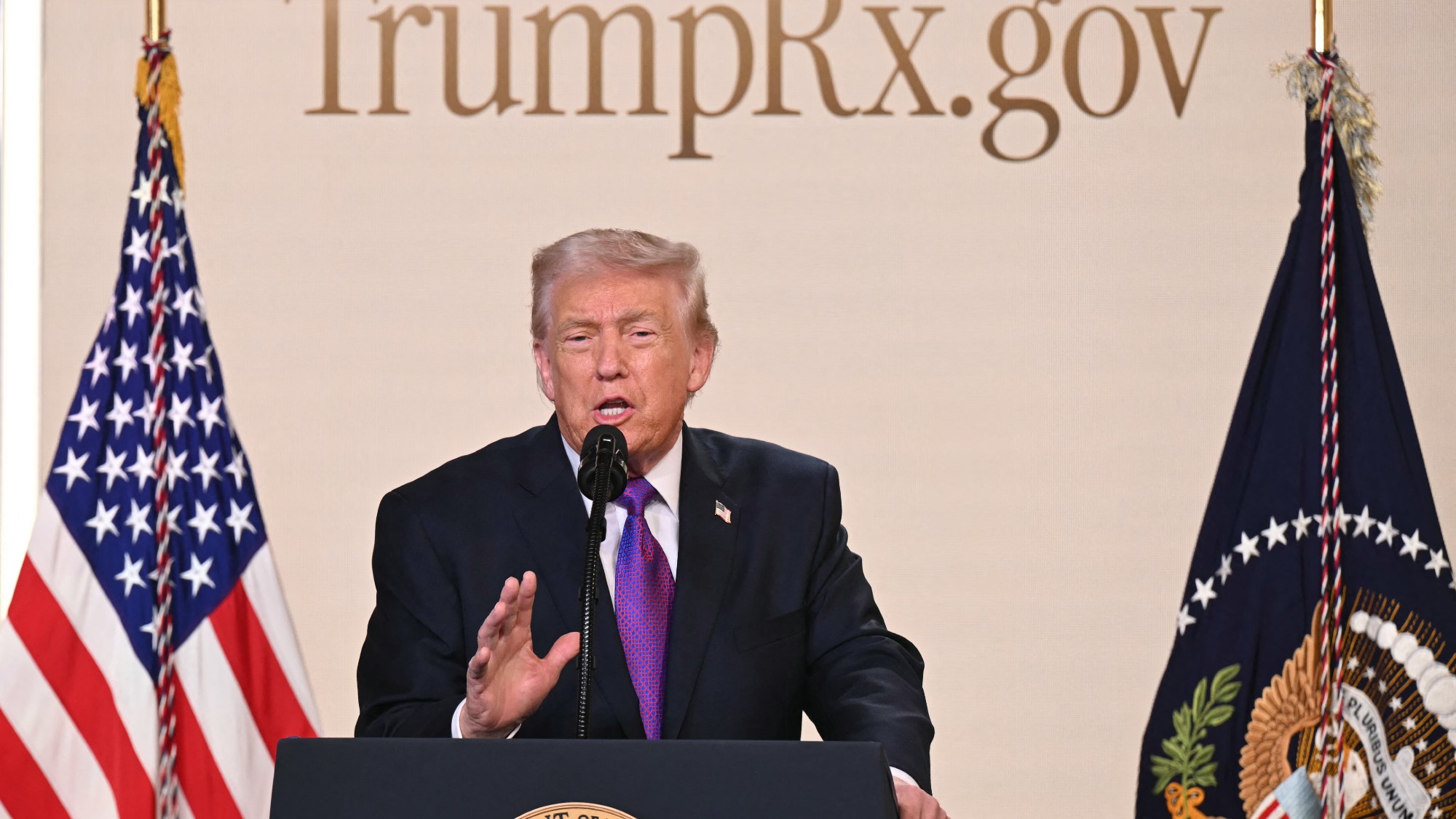 What’s TrumpRx and who is it for?
What’s TrumpRx and who is it for?The Explainer The new drug-pricing site is designed to help uninsured Americans
-
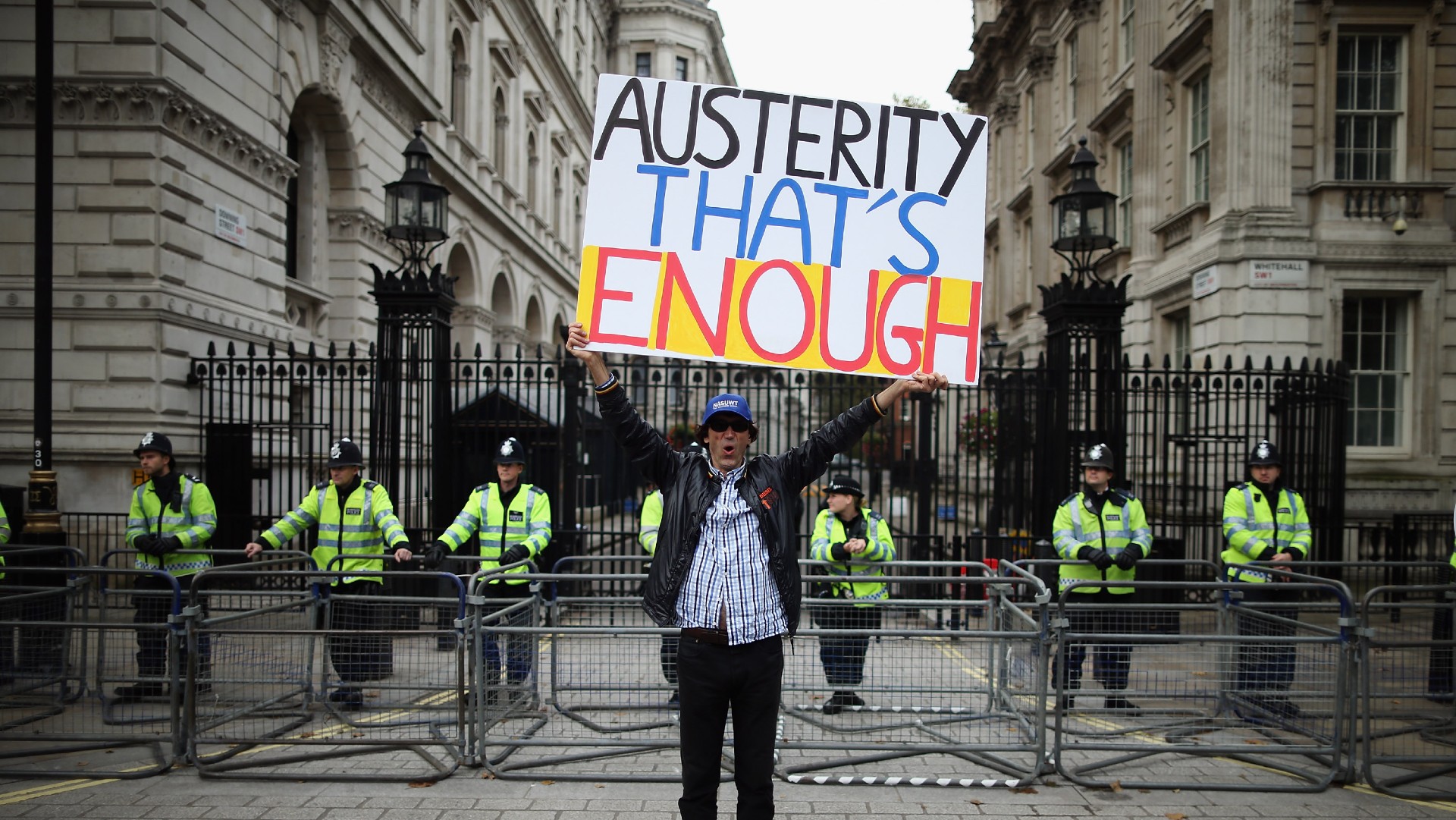 Do Tory tax cuts herald return of austerity?
Do Tory tax cuts herald return of austerity?Today's Big Question Chancellor U-turns on scrapping top rate tax but urges ministers to make public spending cuts
-
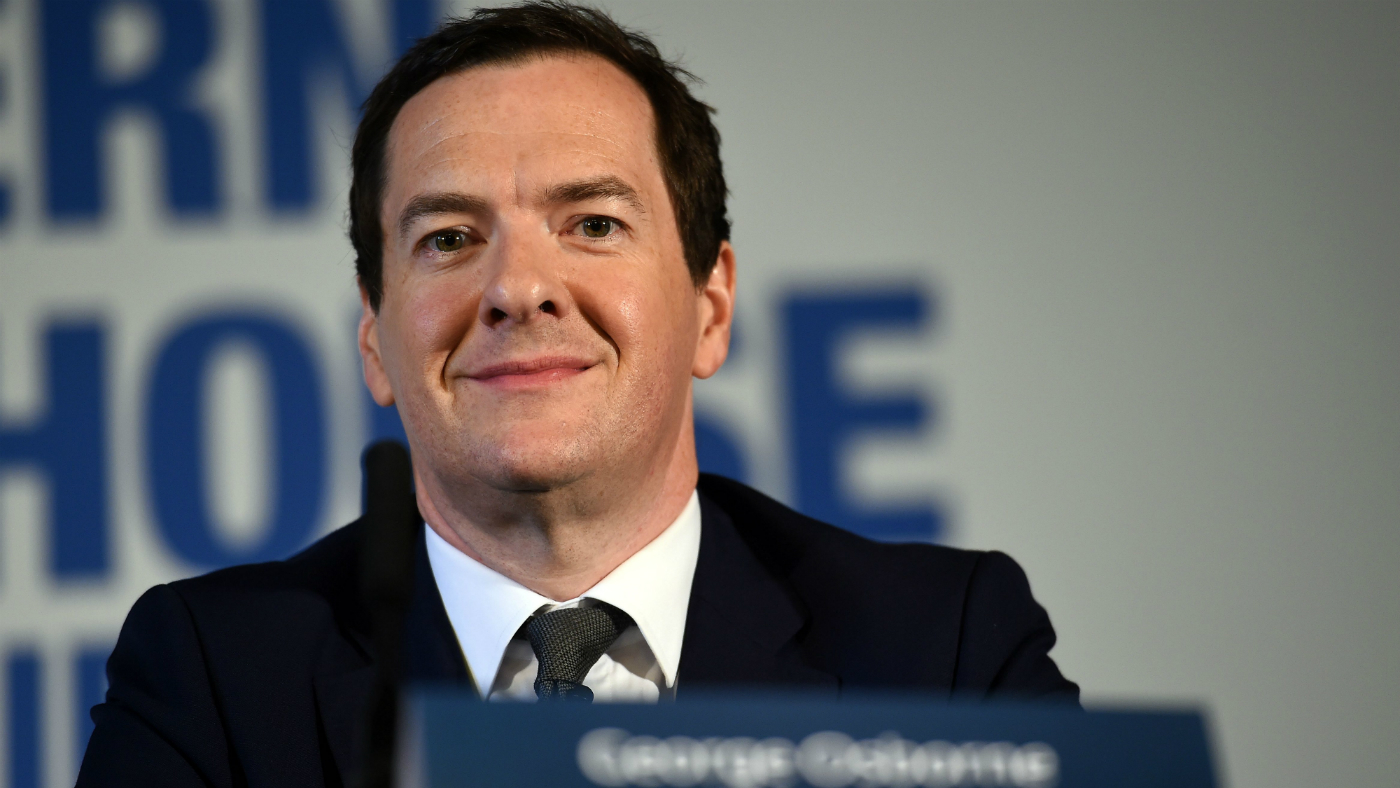 What is the Northern Powerhouse?
What is the Northern Powerhouse?In Depth George Osborne’s think tank was designed to devolve power and boost the North’s economic output
-
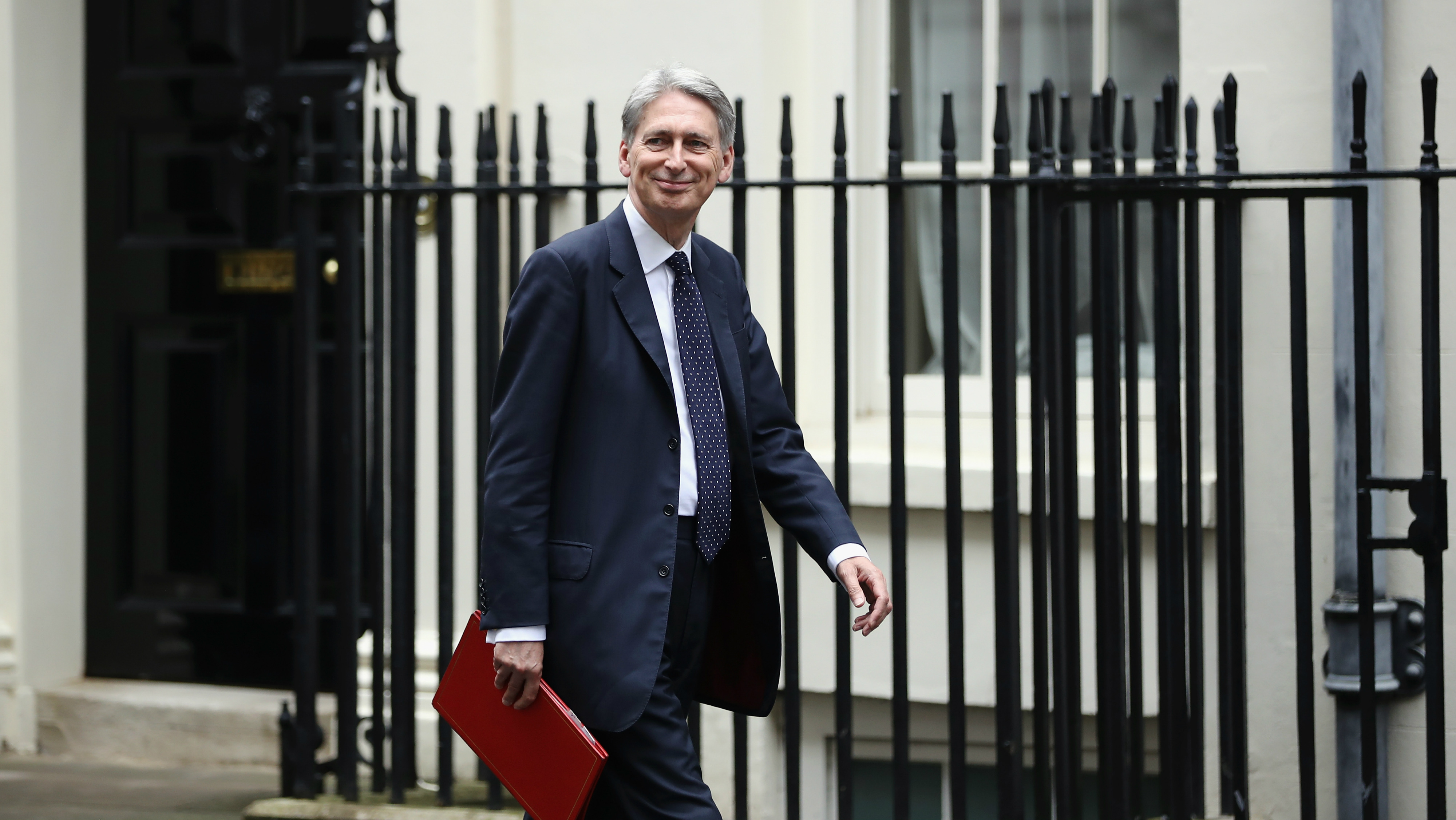 Hammond to announce departure from Osborne policies
Hammond to announce departure from Osborne policiesSpeed Read Chancellor to tell Tory conference 'we must change with the times' in move away from predecessor
-
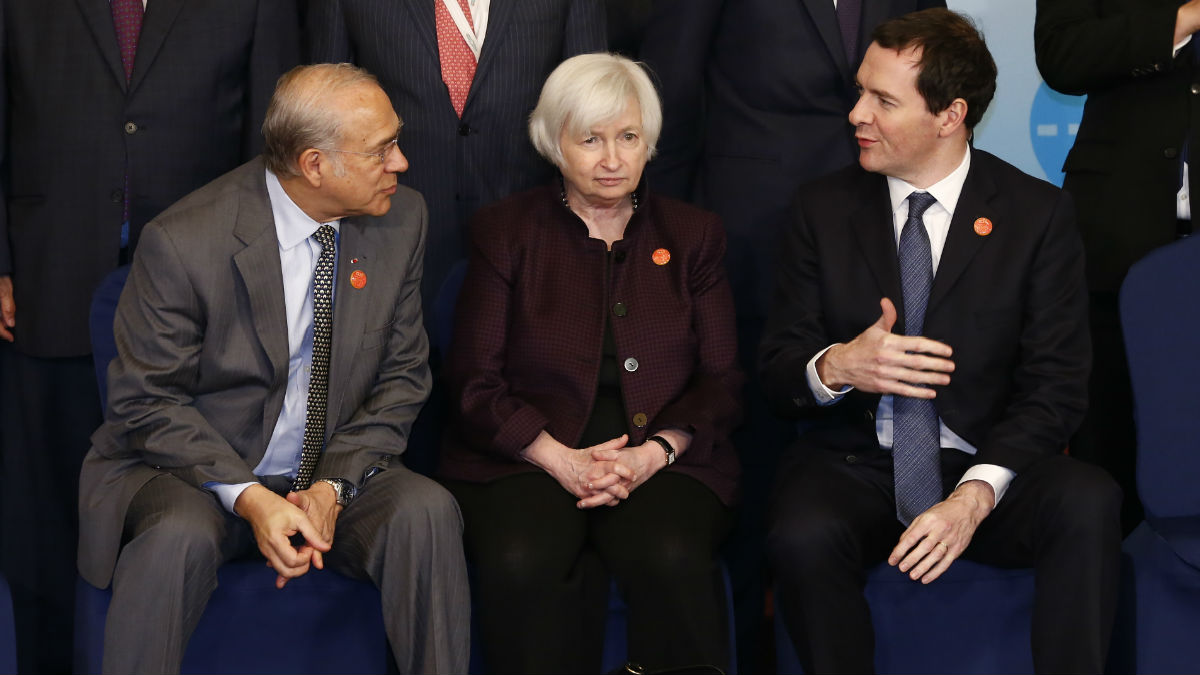 Budget 2016: is George Osborne about to make more cuts?
Budget 2016: is George Osborne about to make more cuts?In Depth Chancellor hints at further austerity measures during interview at G20 meeting in China
-
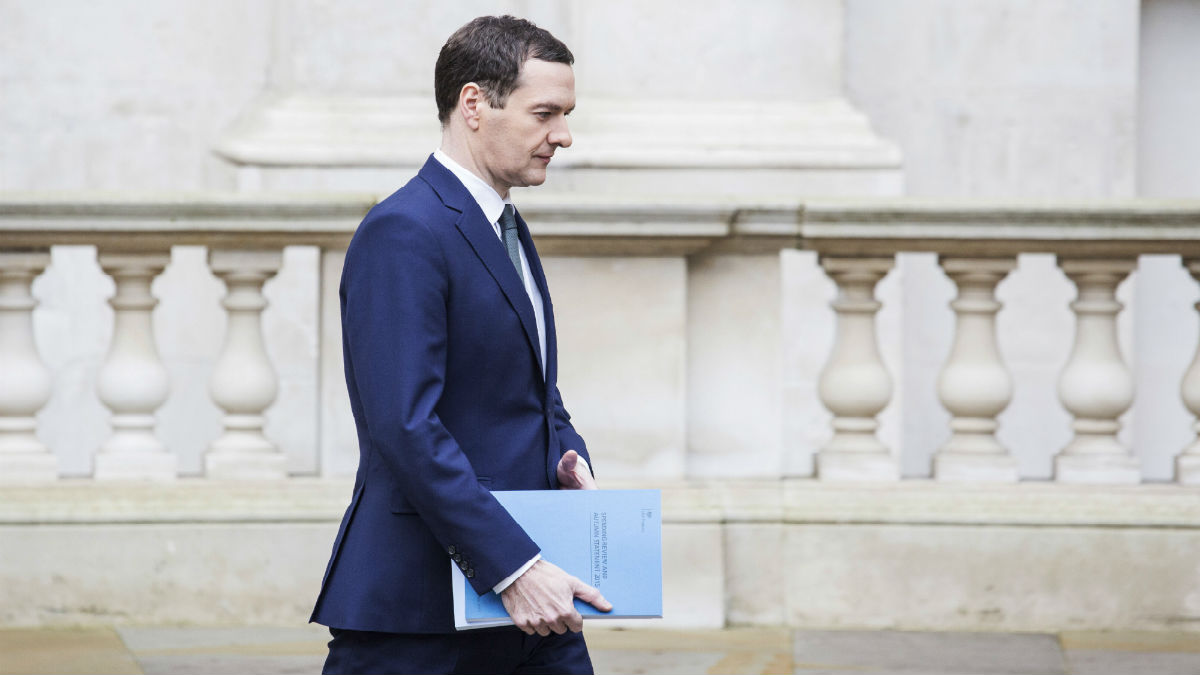 Budget 2016: 'We should all be worried', warns IFS
Budget 2016: 'We should all be worried', warns IFSIn Depth Leading think-tank criticises economic policies that will 'lower wages and living standards'
-
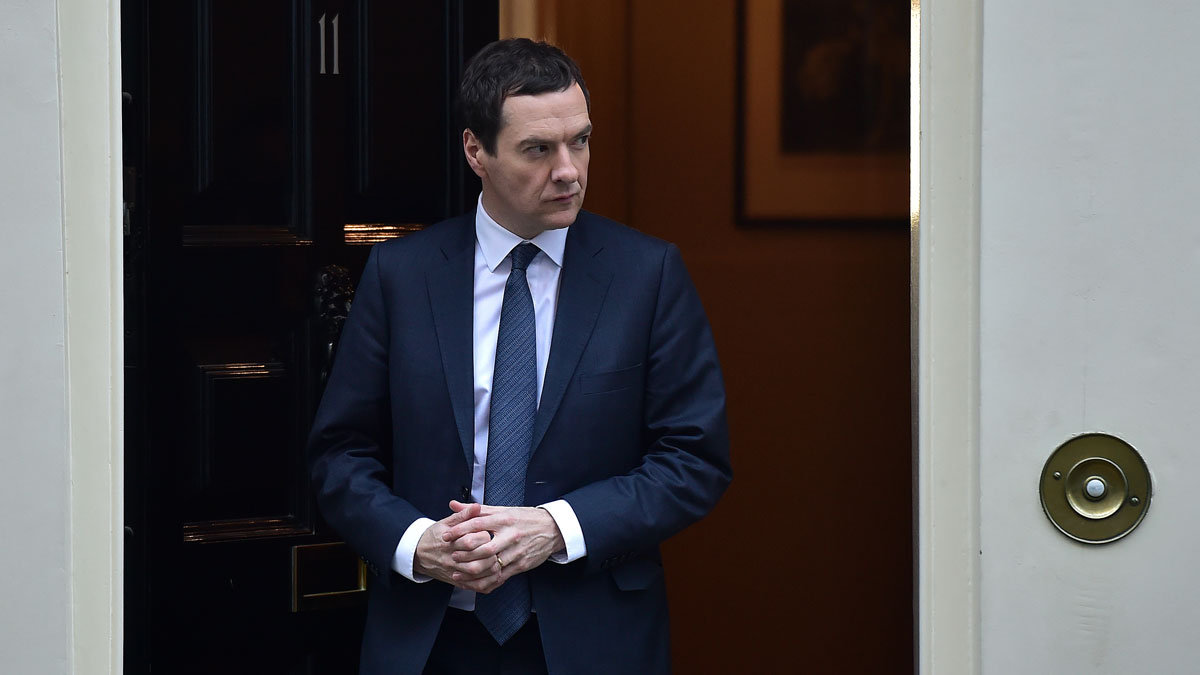 Budget 2016: Osborne in line for another £20bn+ windfall
Budget 2016: Osborne in line for another £20bn+ windfallSpeed Read Lower debt servicing costs could offset weaker tax revenues as a result of market turmoil
-
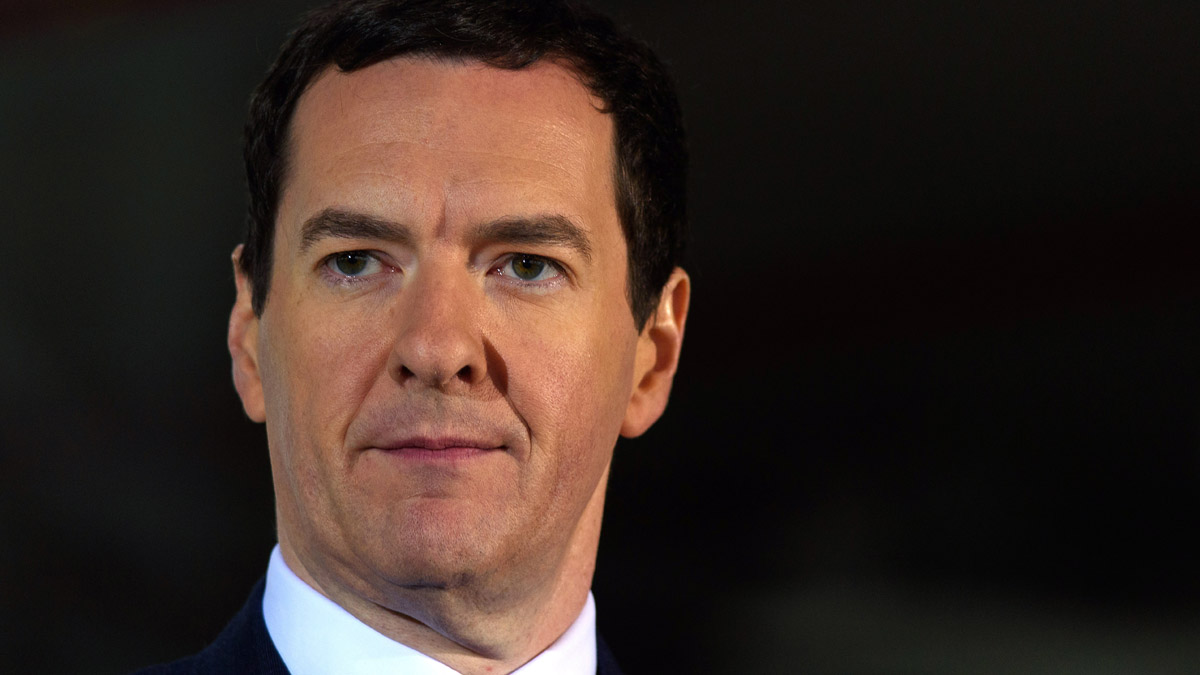 UK growth to surge in spite of global turmoil
UK growth to surge in spite of global turmoilSpeed Read Consumer spending will help country remain insulated from global trade headwinds, says forecaster
-
 Osborne makes fresh case for austerity in warning over 'cocktail' of risks
Osborne makes fresh case for austerity in warning over 'cocktail' of risksSpeed Read World Bank also sounds alarm over "perfect storm" of worldwide economic problems.